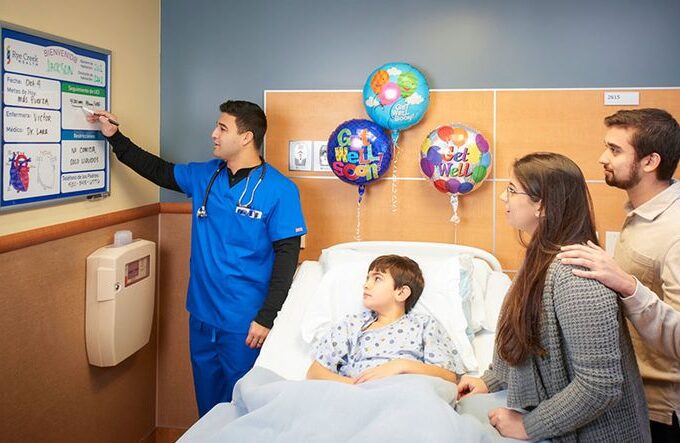Early childhood education serves as a crucial subject which determines how society will develop in the future. The educational environment combines creativity with learning to provide daily chances for affecting positive change in young children. Early childhood education diploma access enables passionate individuals who want to develop young children between birth and age eight to discover an exciting and rewarding career path.
The diploma training delivers essential expertise and enables access to multiple interesting professional positions. Working with children and their families to develop positive change remains flawless for those seeking this occupation. The following section outlines all the advantages that come with this diploma qualification while examining the different professional routes it provides students.
Benefits of Pursuing a Diploma in Early Childhood Education
Several advantages become accessible through enrollment into an early childhood education diploma program. The program provides necessary abilities for effective early childhood education practice.
The educational program delivers comprehensive knowledge about childhood development alongside learning principles and successful educational approaches. The acquired understanding enables professionals to build stimulating spaces which promote child development.
The acquisition of this diploma significantly improves professional opportunities for its holders. Graduates secure good positions in multiple fields as they experience growing demand for qualified educators.
The emotional achievements become extraordinary for individuals who complete this diploma. Watching children reach their important developmental points brings exceptional contentment to early childhood educators. Educational experiences throughout the day bring meaningful struggles that generate motivational opportunities.
The diploma path creates chances for meeting professionals who share similar interests. A person can benefit from professional connections that give guidance and assistance throughout their professional development.
A diploma in early childhood education offers individuals the opportunity to gain essential skills and knowledge required to support young learners. This qualification is highly valued for those aiming to pursue a career in teaching, childcare, or developmental roles. It equips professionals with tools to foster a positive, engaging environment for children’s growth and development.
Career Opportunities for Diploma Holders
Early childhood education diplomas expose scholars to multiple fulfilling occupational opportunities. Newly graduated individuals can significantly transform the development of young children.
Early childhood specialists choose direct service with young children to aid their essential developmental period. The teaching positions available in preschools and kindergartens prove to be widely attractive for prospective educators. Educators at these settings develop active learning areas which inspire both creativity and curiosity in students.
Education administrators and coordinators could find success as potential administrators in their field. These staff members make sure educational activities function properly by serving both teachers and getting support to their team members.
The path to leadership in childcare centers begins when one becomes a childcare center director. As a childcare center director one manages daily operations and ensures both regulatory compliance and provides high-quality care to children.
Family support specialists actively assist families by helping them resolve issues which arise from child-rearing responsibilities. Such professionals deliver valuable resources as well as direction which enhances family functioning and supports children’s requirements.
Diploma holders have different career options available to select career paths according to their individual skills and interests.
Education Administrator/Coordinator
Early childhood programs receive their shape from Education Administrators and Coordinators who lead these efforts. Curriculum leaders at these positions supervise educational content while maintaining standard compliance.
Additionally they oversee workforce management by offering guidance to their teaching staff. Under their leadership the organizational and educational spaces become favorable conditions which enable staff members as well as students to reach their full potential.
The administrative workload of these professionals includes tasks which involve budget preparation as well as appointment management together with regulatory compliance activities. Administrators need both effective organizational abilities and complete awareness of child development guidelines to fulfill their multiple tasks.
The creation of partnership-based learning experiences requires administrators to build networks with families together with community organizations. Administrators dedicate all their time to obtain resources which create advantages for their educational programs.
Early education administrators can use their career to create substantial impacts on educational results for young children—an opportunity which strongly appeals to those devoted to teaching young learners.
Childcare Center Director
Early childhood education windows depend heavily on Childcare Center Directors to fulfill their essential functions. Childcare Center Directors bring leadership together with their love for educational growth among young children.
Managers conduct daily tasks to create safe educational conditions for children. Through their role they need to supervise the staff team and establish educational programs and meet all necessary rules. Communication effectiveness stands as an essential requirement for communicating with all groups who interact at the childcare center including parents and children and educational staff.
As part of their duties they also develop strong connections between center families and staff. Development of trust between adults becomes vital for building an environment where children can grow effectively.
The implementation of creativity by directors leads them to design curricula which use playful approaches for education. The center’s outlook determines how all its students experience education positively.
Wielding responsibility in this position leads to a big sense of fulfillment by observing children make progress during their development. Early childhood education diploma training bestows necessary skills and expertise to future directors of preschools through a satisfying career journey.
Family Support Specialist
Early childhood education relies heavily on Family Support Specialists to play their essential part in the field. Family Support Specialists lead direct contact with families through guidance and developmental stage support. Working professionals in this field help parents overcome obstacles to provide their children with optimal lifetime beginnings.
The Family Support Specialist partners with both social service agencies as well as schools and community organizations in their work. Excellent interpersonal abilities together with understanding are both necessary for this job. The work as a Family Support Specialist includes visiting homes and planning parenting sessions while providing specific resources to meet personal family requirements.
Your success in this career will improve when you earn an early childhood education diploma since the courses teach fundamental teaching techniques and child development principles. This position dedicates itself to children alongside their families through home-based approaches which create healthy growth spaces for their development.
Finding placement as a Family Support Specialist brings extraordinary satisfaction to the profession. Your work will influence both children and their entire families who live in your community. A career in Family Support has great potential for those who love using support to enhance education at its basic level.
















